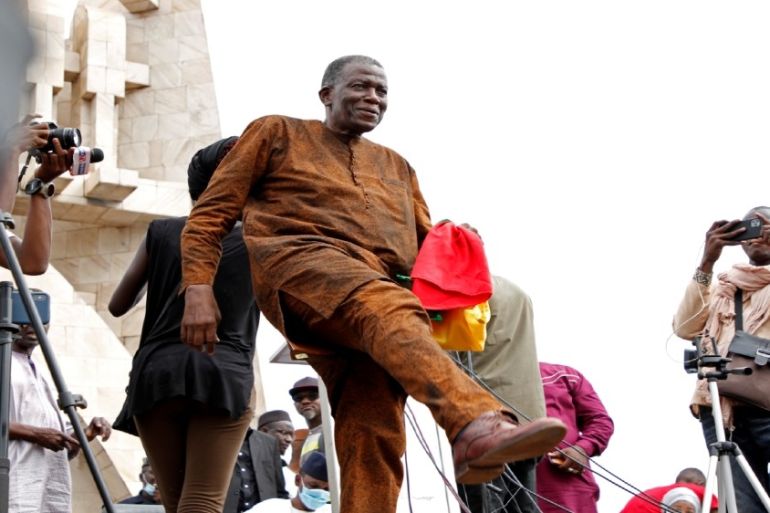Mali opposition rejects military-backed transition charter
Opposition June 5 Movement accuses the military government of ‘desire to monopolise and confiscate power’ after coup.

Mali’s popular opposition movement has rejected a charter for a transition government backed by the ruling army officers who overthrew President Ibrahim Boubacar Keita in a coup last month.
The military government backed a charter for an 18-month transition government on Saturday, after a three-day forum with political parties and civil society representatives.
The charter also proposed the transition be led by either a military or civilian leader, which leaves open the possibility that military officers who seized power could remain at the helm for another 18 months until elections are organised.
But the June 5 Movement (M5-RFP), which took part in the talks, rejected the road map in a statement on Sunday, and accused the military government of a “desire to monopolise and confiscate power”.
It also said discussions had taken place against a backdrop of “intimidation, anti-democratic and unfair practices worthy of another era”.
“The final document read at the closing ceremony was not consistent with the deliberations of the various groups, including the majority choice of a transition led by a civilian,” the M5-RFP said.
A committee chosen by the military government, which was overseeing the talks, adopted the final version of the charter by acclamation on Saturday.
Some seats in the 121-person legislature foreseen in the charter are reserved for members of the M5-RFP.
Civilian leader
The M5-RFP is a loose coalition of opposition groups, religious leaders, and civil figures who organised a months-long wave of protests against Keita, which led up to his removal and arrest in a coup on August 18.
Regional and international powers, fearful that political instability will undermine a years-long fight against armed groups across West Africa’s Sahel region, have pushed for a swift transition back to civilian rule.
The 15-nation West African regional bloc – the Economic Community of West African States (ECOWAS) – has warned the military government must designate a civilian leader to head a one-year transition period by Tuesday or else the country could face further sanctions.
ECOWAS has already stopped financial transfers into the country and has closed its borders with Mali.
Mali’s military government leader, Colonel Assimi Goita, said he hoped for the support of the international community after the military leaders agreed to reduce the transition period to 18 months after initially proposing three years.
|
|